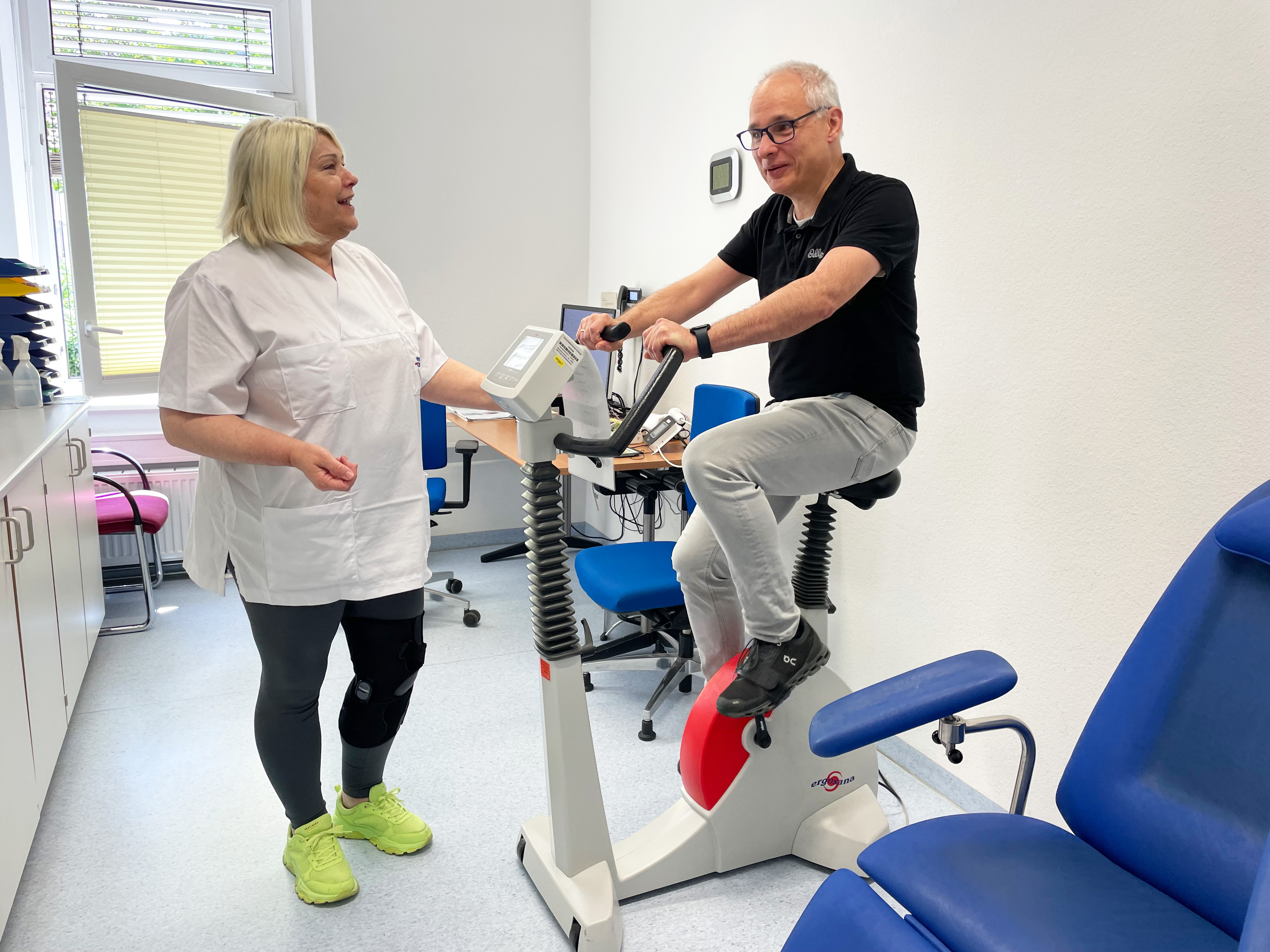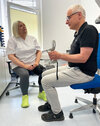Health in Germany: Evaluation of the NAKO Health Study
Second study period completed / Freiburg is the slimmest city in Germany, according to data from the country's largest population study / Important results on weight, heart disease and depression, among other things

The NAKO Health Study is the largest population study in Germany and has been running since 2014. The second study period, which began in 2018, will now be completed in June. One of the results: Freiburg and the surrounding area has the leanest overall population in Germany. Overall, the scientists also collected important data on heart disease, depression, type 1 diabetes and many other diseases. Around 137,800 participants were examined nationwide in the second study period, 7,650 of them in Freiburg. The third study period will start at the Freiburg study center in July.
"The results of the second round of the NAKO study provide us with valuable insights into the health of the German population and help us to improve preventive measures," says Prof. Dr. Karin Michels, Director of the Institute for Prevention and Cancer Epidemiology at the Medical Center - University of Freiburg. For example, a study within the NAKO showed that the body mass index (BMI) of the Freiburg test subjects was the lowest among the 18 NAKO study locations at 26.7 for men and 25.2 for women, and lower than the national average of 27.4 (men) and 26.3 (women). According to the World Health Organization (WHO), a BMI over 25 is considered overweight. "The relatively low BMI is pleasing, but still too high for health," Michels reminds us. Further studies involving Freiburg are currently being evaluated, for example on the long-term health of professional footballers.
A special feature of the NAKO Freiburg is the high level of support from the population. Almost 80 percent of the participants in the basic study took part in the second study, which puts Freiburg at the top of the 18 study centers. "We are grateful to our participants for their loyalty and the enthusiasm with which they support the NAKO Health Study," emphasizes Michels. The Freiburg study center received the prize for the "best participant loyalty" of all NAKO locations from the NAKO association.
The Medical Center - University of Freiburg is not only participating in the NAKO Health Study as a study center, but is also responsible for the overall coordination of the MRI study under the direction of Prof. Dr. Fabian Bamberg, Medical Director of the Department of Radiology. Here, the participants receive a full-body MRI examination lasting around one hour. The MRI scan shows, for example, fat distribution in the body or the different organ sizes, such as the liver, lungs or muscles and joints. "The high spatial resolution of MRI throughout the entire body will enable us to understand how we can better detect and treat diseases at an early stage," explains Bamberg.
Important nationwide NAKO findings
Some key nationwide findings from the second round of research are
- Cognitive performance: this was significantly reduced in participants* on low incomes, unemployed or living alone, and the combination of these factors amplified the effect.
- Cardiovascular disease: The 10-year probability of cardiovascular disease was significantly increased in those with a low socioeconomic position, particularly in women.
- Depression: 15 percent of participants self-reported being diagnosed with depression, and around half had been treated with medication in the year prior to the survey. Freiburg was in the middle of the field here.
- Early retirement: Around a quarter of the retired participants stated that they had retired early for health reasons.
- Being overweight in adolescence doubled the risk of multiple sclerosis.
- Type 1 diabetes: The risk was highest among only children and decreased with higher birth order.
Effects of the COVID-19 pandemic
During the first COVID wave, moderate to severe depression increased by 2.4 percent and anxiety symptoms by 1.5 percent. The main causes were job loss, financial stress and working from home. Poor health before COVID and pronounced symptoms during the illness increased the likelihood of post-COVID.
What is the NAKO Health Study?
The NAKO Health Study is a long-term population study that observes a large group of healthy, ill or formerly ill people over many years. The aim is to investigate the development, frequency and causes of diseases such as cancer, diabetes, dementia and cardiovascular diseases. Since 2014, randomly selected people have been medically examined and questioned about their lifestyle habits in 18 study centers across Germany. Over 200,000 people took part in the first baseline examination, followed by a follow-up examination every four to five years. This includes various tests, such as blood pressure measurements, hand grip tests and the collection of biomaterials. Around 30,000 participants also received an MRI scan. Invitations to the third round of examinations are currently being sent out.
Further information on the Internet
Captions:
Image 1: Hand strength is also measured: A participant in the NAKO Health Study operates a dynamometer under the guidance of a study assistant.
Image 2 : A participant in the NAKO Health Study pedals on the bicycle ergometer to measure physical performance.
Image 3: A study assistant from the NAKO Health Study holds an olfactory test under the nose of a test person and checks whether they are able to identify and distinguish between different odors.
Back
Medical Center - University of Freiburg
Central Information
Phone: 0761 270-0
info@uniklinik-freiburg.de
For press inquiries:
Corporate Communications
Breisacher Straße 153
79110 Freiburg
Phone: 0761 270-84830
kommunikation@uniklinik-freiburg.de



